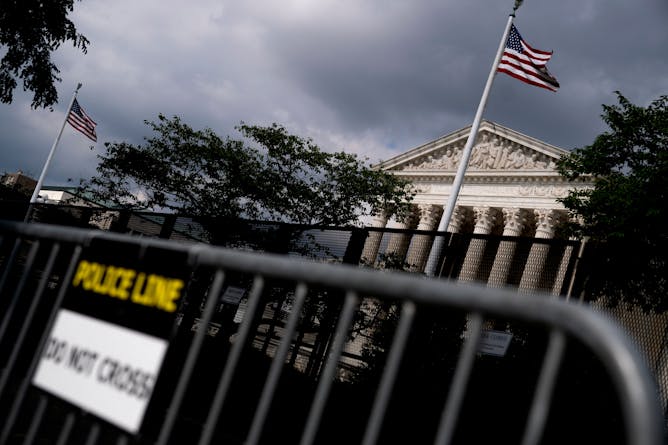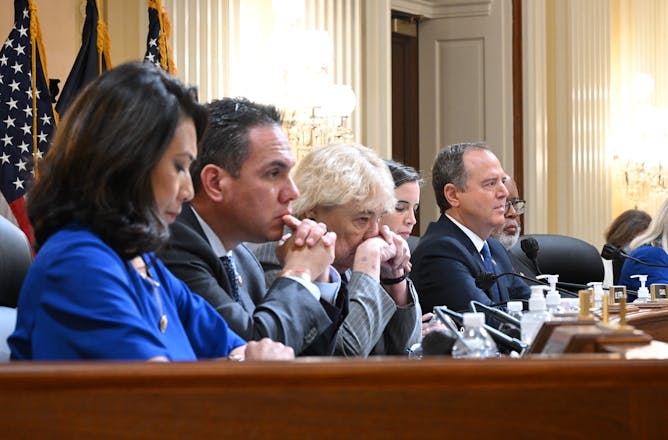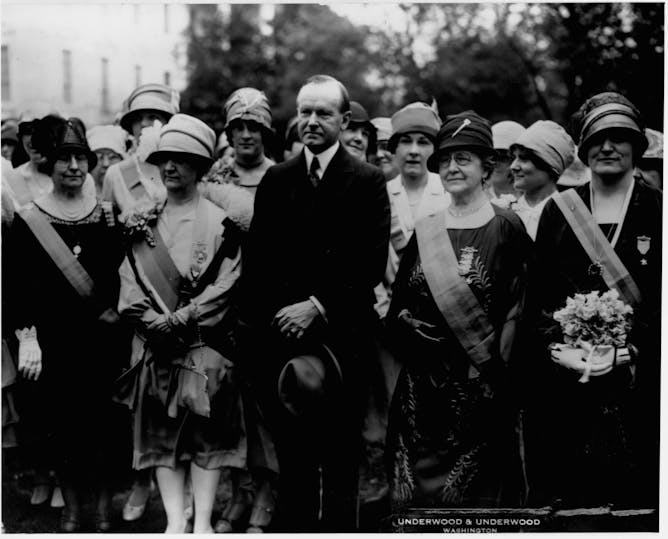|
Reviewing a week that saw the overturning of the constitutional right to an abortion, stunning testimony by a young, former White House aide about former President Trump’s impulsive and even violent behavior on Jan. 6, the first bipartisan gun control legislation in a generation signed into law and a consequential Supreme Court decision that a public school coach had a right to pray on the football field after the game, I had a hard time figuring out how to focus this newsletter. What stood out? Everything stood out.
Talking last night with my husband, also a longtime journalist, we reflected about how there have always been “A” stories that dominate the news. They come along every few weeks, and sometimes a newsroom has to put many reporters on the big story. But usually, your coverage has “B” and “C” level stories that are important, yet not screaming-headline important.
That’s not the case anymore, and really hasn’t been since the 2016 presidential election. (I’ve likened my job since then to being in labor for six years.) Not all the stories have been politics – think pandemic, climate change-connected flooding and fires, mass shootings. But somehow, it’s as if time accelerated these past few months, and the consequential, A-level stories have been relentlessly breaking, one after another, one on top of another.
All of which is to say that, over the past week, we’ve done a lot of what we aim to do here at The Conversation, which is to take stories in the news and give you deeper coverage from experts who explain the background to the headlines, and provide unique insights from their scholarship. Stefanie Lindquist, a legal scholar from Arizona State University, advanced understanding of Roe’s reversal, writing about how state supreme courts are now going to be a prime battleground for abortion rights. April M. Zeoli, a criminal justice scholar at Michigan State, zoomed in on one aspect of the gun control legislation, looking at whether closing the so-called “boyfriend loophole” would save lives. And Claire Leavitt, a scholar of government accountability, wrote for us about how, while the Jan. 6 committee hearings have made a big splash, especially with aide Cassidy Hutchinson’s testimony on June 28, the committee’s hearings represent only a fraction of the oversight work done by Congress.
Have a good July Fourth, and fingers crossed that we have a few weeks before the next “A” story breaks.
|

Temporary security fencing surrounds the U.S. Supreme Court building, ahead of its decision on abortion.
Stefani Reynolds/AFP via Getty Images
Stefanie Lindquist, Arizona State University
State supreme courts have a relatively low profile in the US. That’s going to change now that they will be under political pressure to decide whether abortion is protected in state constitutions.
|

Members of the House committee investigating the Jan. 6 attack listen during the fourth hearing on June 21, 2022, in Washington, D.C.
Mandel Ngan/POOL/AFP via Getty Images
Claire Leavitt, Grinnell College
Congress has the power to make sure government serves the public interest. Conducting investigations is one way lawmakers do that.
|

President Calvin Coolidge stands with members of a nonprofit group called the Daughters of 1812.
Library of Congress/Corbis/VCG via Getty Images
Chris Lamb, IUPUI
US President Calvin Coolidge hasn’t gone down in history for his triumphs or failures as president during the 1920s – but his dry sense of humor carries on.
|
|
|
-
Rokeshia Renné Ashley, Florida International University
WNBA star Brittney Griner is scheduled to appear in Russian Court on July 1, 2022, after US officials determined she had been wrongfully detained.
-
Wendy Bach, University of Tennessee
Tennessee and Wisconsin are among the states that can jail pregnant women because of illegal substance use, despite major medical groups saying that this practice isn’t effective.
-
David Schultz, Hamline University
The justices who decided to overturn the abortion rights precedent of Roe v. Wade explained their reasoning, and signaled other precedents could be reversed as well.
-
Stanislav Budnitsky, Indiana University
For more than a decade, the Russian government has been putting teeth into its doctrine of ‘digital sovereignty’ by steadily increasing censorship of content and control over internet access.
-
Derek T. Muller, University of Iowa
The attempt by Donald Trump’s supporters to reverse the 2020 presidential election results shows the need to update the nation’s landmark law for counting presidential votes.
-
Calvin Schermerhorn, Arizona State University
The legacy of racism in both the United States and the United Kingdom has impacted the ability of Blacks and other ethnic groups to accumulate wealth.
-
Pierre M. Atlas, Indiana University
A scholar of gun culture looks at the roots of Americans’ love affair with firearms – and their willingness to accept gun violence as a price of freedom.
-
Nora McDonald, University of Cincinnati
Data privacy is an abstract issue for most people, even though virtually everyone is at risk. Now that abortion may become illegal in some states, digital surveillance could take an even darker turn.
-
Charles J. Russo, University of Dayton
Kennedy v. Bremerton, a case about a public school teacher’s prayer, helps close out a Supreme Court term in which religion was often in the spotlight.
-
Alessandro Piazza, Jones Graduate School of Business at Rice University
In contrast to their reaction to gay rights or the war in Ukraine, relatively few companies have openly criticized the Supreme Court ruling ending a constitutional right to abortion.
-
Lucinda M. Finley, University at Buffalo
Even in states that ban abortion, legal precedents indicate that donating to, and receiving assistance from, abortion funds is an expression of free speech.
|
|